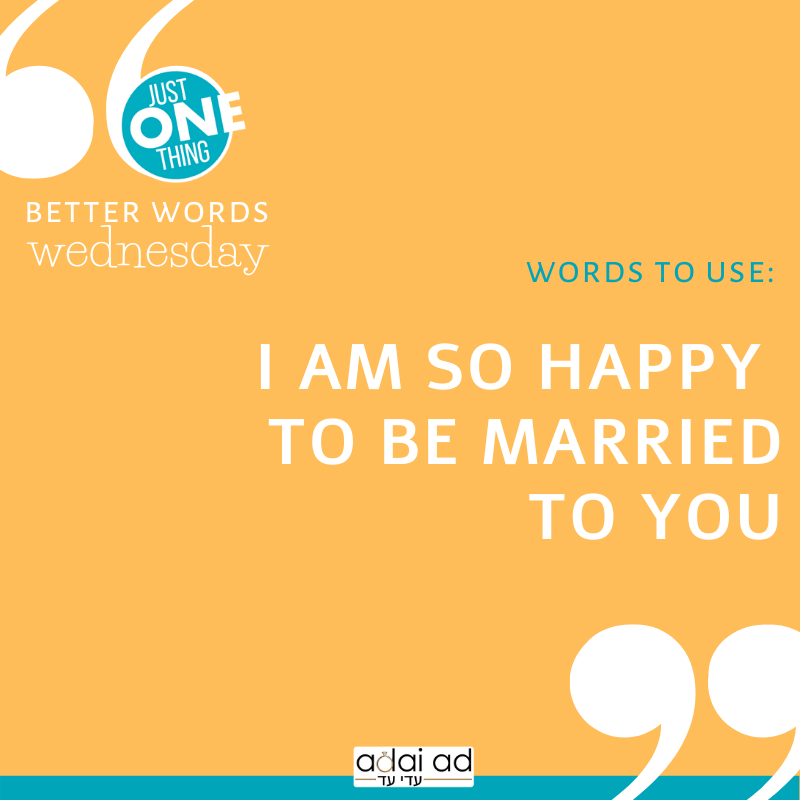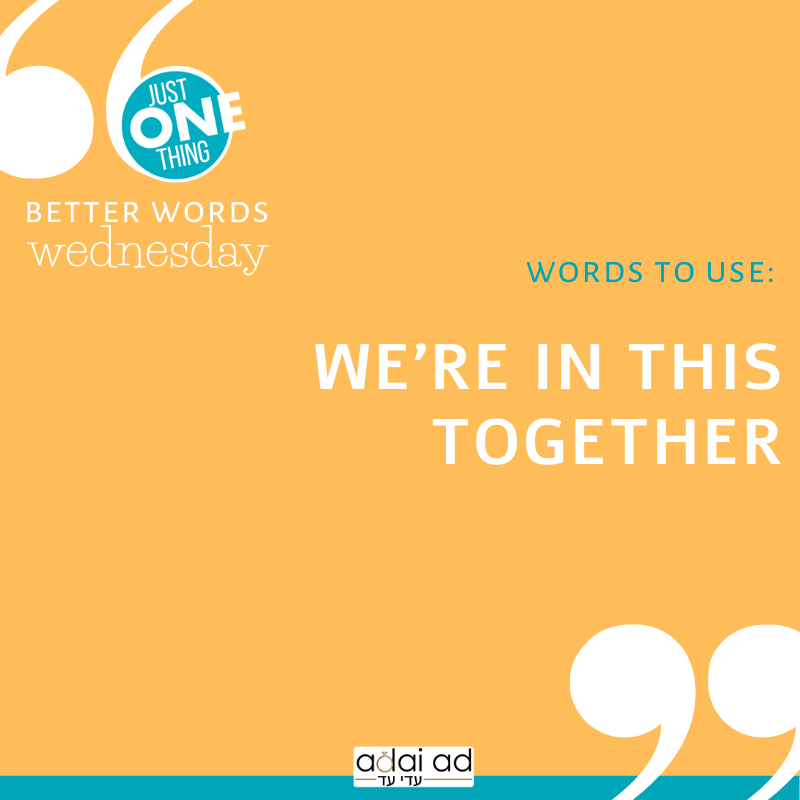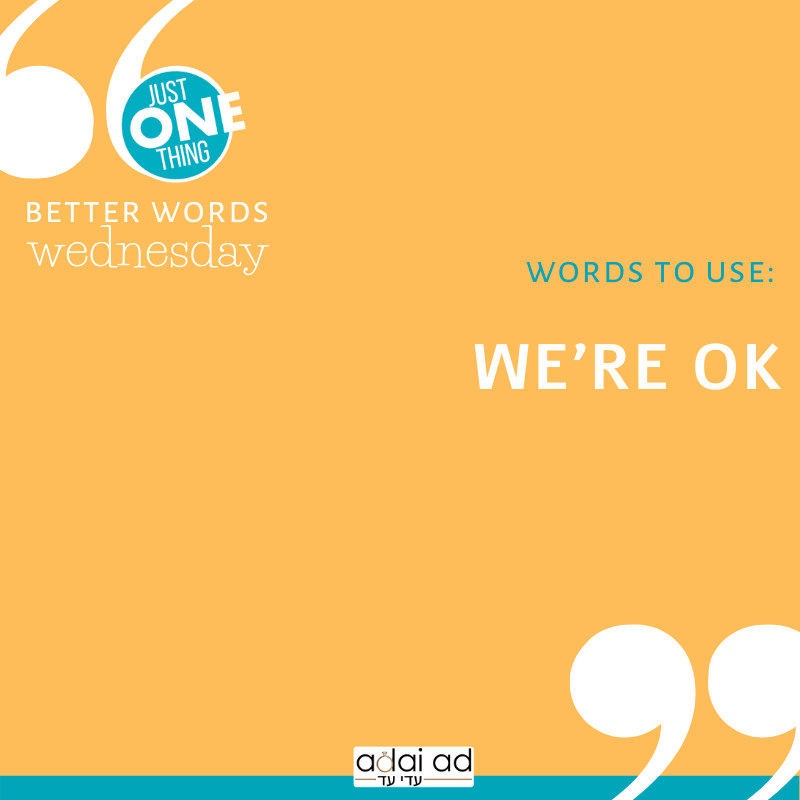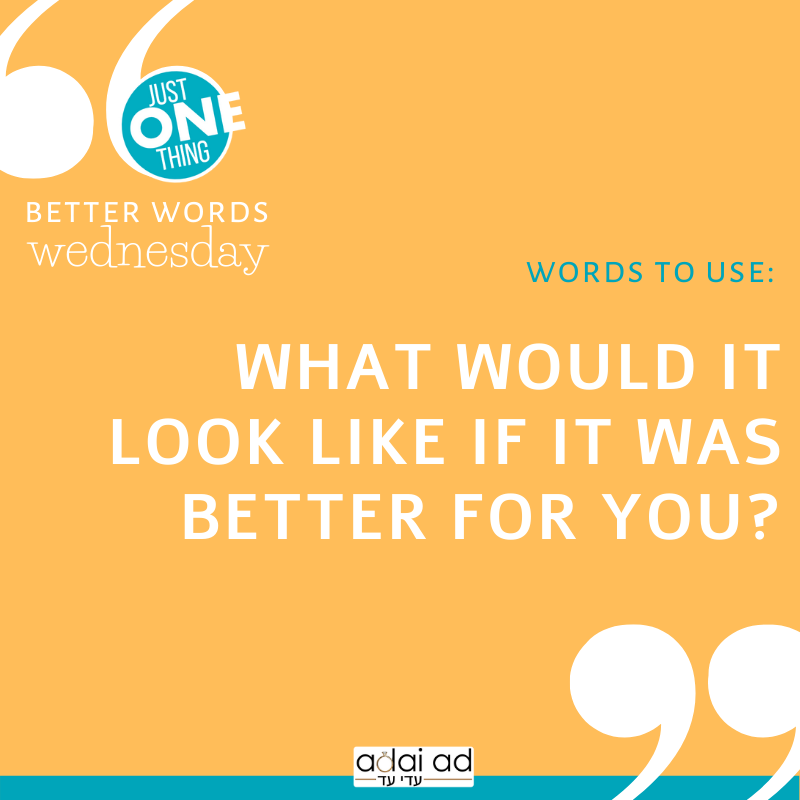Words to Avoid: “Who is right here?”
These words are usually said when there is a conflict and the speaker thinks that they are right and the other is wrong. The thing is: just because the other person has a different perspective, it doesn’t mean that it is wrong. It’s just different, not necessarily wrong. Instead, look to resolve the conflict. Additionally, […]
Words to Avoid: “Who is right here?” Read More »









